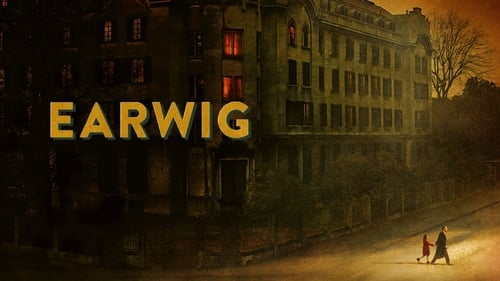
Sound Mixer
Somewhere in Europe, mid-20th century. Albert is employed to look after Mia, a girl with teeth of ice. Mia never leaves their apartment, where the shutters are always closed. The telephone rings regularly and the Master enquires after Mia's wellbeing. Until the day Albert is instructed that he must prepare the child to leave.

Sound
For mysterious reasons, two watchmen are made to guard access to the river in an area of Lausanne where retirees and immigrant families live. Through the different people they encounter, a territory takes shape and a friendship is born. Tizian Büchi creates a fable—part documentary, part fiction and tinged with magical realism—to subtly question our surveillance society.

Sound
Ada is 19. She agrees to have dinner at the home of a boy she knows. It all happens very quickly, she does not defend herself. It is in 2013, after a screening of her first film, that Alexe Poukine meets her: a woman of her age who shares with her something that happened nine years before and that she does not know what to do with.

Sound Recordist
The filmmaker Théo Angelopoulos died on January 24th, 2012, knocked down by a motorbike on the set of his final film. In his unfinished film, he was telling the destinies of the victims of the Greek crisis. The list of victims of the crisis has only grown longer, this destitution echoing another that Théo had sensed was coming: that of the massive arrival of refugees who find themselves trapped in Greece by the closure of the borders. Yet citizen resistance is being organized and fights every day to bring those in danger of obliteration out of the shadows. Ironically, the ambulance supposed to come to his rescue broke down because budgetary restrictions had made it impossible to maintain the vehicle. The crisis itself killed Théo. This is a letter addressed to him in the form of a film.

Sound
This is de facto a film about a film, with the only difference being that the focus is exclusively on the extras. They are filmed while waiting to take their turn, while conversing with others, and thinking about their performances. Although they take their duties very seriously and long to be stars, for the filmmakers, they’re just people that can be coordinated as necessary, nothing more. This film, on the contrary, gives them full consideration, revealing their personalities, what they experience, and what they dream of. The footage comes from many different places where movies are made, involving extras from all different nationalities.

Sound
Everyone calls him Kev, this pale-looking redhead, who a social worker found, as a child, locked in a bedroom where he had only rays of sunshine to play with. Now a teenager, Kevin suffers from a form of autism so severe that the majority of so-called specialised institutions have long refused to take him in. Clémence Hébert followed him with her camera, from one place to another. She, who is gifted with speech and he, who lives without, tamed each other as peers with a lens as the only medium of recognition, which captures what palpitates, appears, withers, and recommences. A discontinued but living link.

Sound





